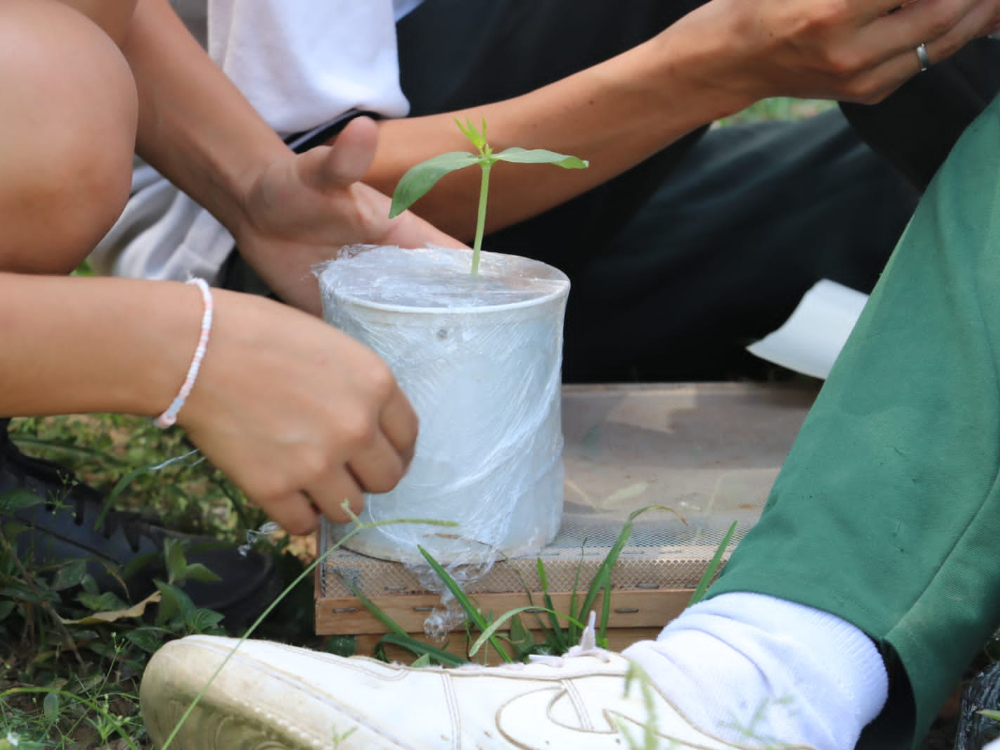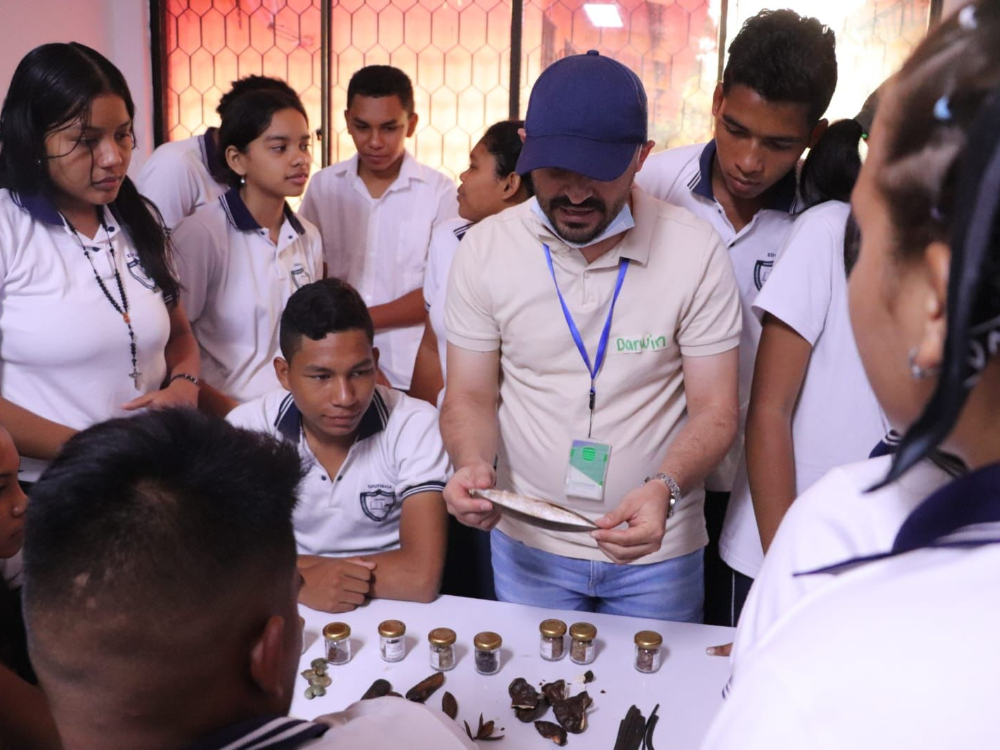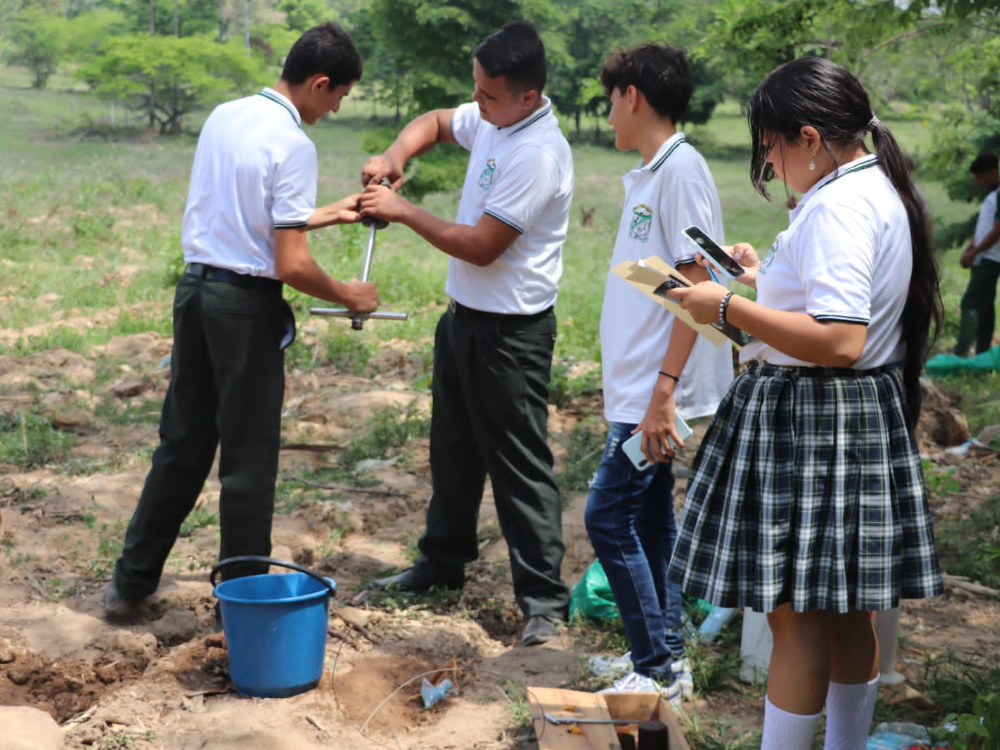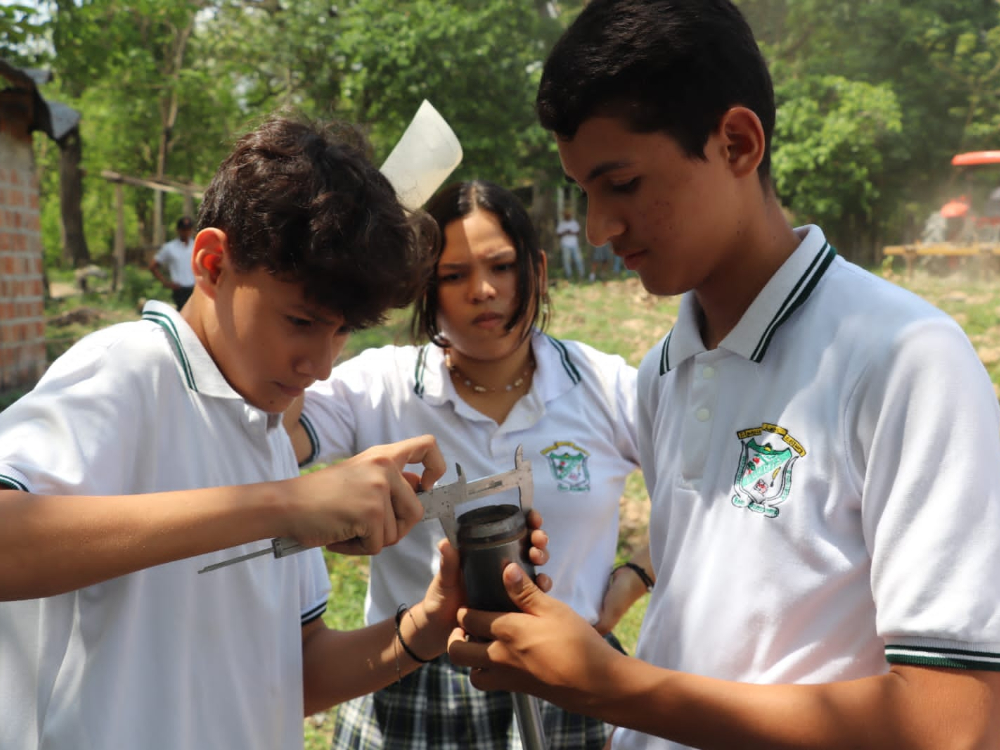Codazzi, Cesar. April 4, 2023. The Ministry of Agriculture and AGROSAVIA have developed a project to generate opportunities for the rural youth for their generational integration in the countryside, based on strengthening training environments and linking technologies according to local needs, involving 20 institutions at the national level to stimulate their permanence in the countryside.
In Colombia, the rural youth are in a vulnerable situation in terms of education, showing limitations such as low coverage, student desertion (due to lack of resources, interest, or violence in their territories), and limited development of socio-emotional and academic skills. The latter has led to the low interest of students in their educational processes since they do not see it as relevant and of quality, involving innovation and focused on the needs of the region. In this order of ideas, education constitutes an important tool to promote the development of rural inhabitants.
The alliance between Minagricultura and AGROSAVIA fulfills the objective of carrying out pedagogical activities implementing "learning-by-doing" methodologies appropriately with their conditions and livelihoods, with the support of their family unit, the specific environment of their community and the productive potential of the territory. Although, the Corporation has been emphatic in highlighting the importance of meeting the needs of groups that they consider to be a priority for their activity, such as rural youth, rural women, family farming, and ethnic groups.
For AGROSAVIA, working with the rural youth is extremely important because they promote rurality development. The participatory inclusion of young people who will most likely be agents of change and co-creators of technologies, knowledge, and research with a sustainable approach has a positive impact on a sector that needs youth to prevail over time.
The Motilonia Research Center is working hand in hand with the Anaurio Manjarrez Technical-Agricultural Educational Institutions of the municipality of La Jagua del Pilar, La Guajira, and the Educational Institution Rosa Jaimes Barrera of the municipality of Pailitas, Cesar. Supporting schools is a window of opportunity to disclose the work of the Corporation through different training days, aiming at sharing and exchanging knowledge with students about the technologies developed by AGROSAVIA and other allied entities in the amazing countryside world in which they converge under the same purpose: strengthen capacities, generate knowledge and develop skills.



Sandra Perdomo-Ayola, the researcher responsible for the project in the Dry Caribbean region, mentioned, "Young people are eager to acquire new knowledge, inquire into curiosity, and why not, learn to undertake. This project represents a door to transform the agricultural sector." The project seeks to strengthen productive pedagogical projects with activities to be developed and transmitted in the following school grades, as well as encourage and involve students in research, where they will have the opportunity to experience part of the Corporation's mission.
Sandra Perdomo-Ayola, regional leader, highlighted, "Involving young people in this type of project will somehow renew the countryside with acquired knowledge, use practices that are in harmony with caring for the environment, and even implement the use of ICT. These may be useful for managing new learning that could be applied at some point and turned into experiences. Besides, rural youth has great leadership potential, and the project seeks to strengthen this action by encouraging other young people to discover opportunities to stay in the countryside."
To elaborate on the proposal, the collaborators of the Motilonia Research Center made previous visits to know the state of the facilities of the educational institutions for their subsequent improvement or creation if required. During that day, participatory workshops were held to gather information about the productive projects they have been carrying out. However, although this project benefits the school, the academic community also comprises the "school." In this regard, the teachers' opinions and especially young people, were considered. The latter are lead players who eventually revealed what they would like to learn, strengthen and implement in schools and that they are cohesive with the productive environment. The previous served as the basis for structuring the project and, consequently, planning the activities to be carried out. It should be highlighted that the territory's productive potential was considered for its formulation.
The opening of the project began with socialization in each of the educational institutions, inviting young people in grades 9, 10, and 11, teachers, and local actors (community leaders, the secretary of education, and parents, among others) who were informed of the work that will be carried out considering the prior agreements with the academic community. During the execution of this project, improvements in training environments will be made, and alternately, several workshops will be held. Hence, young people will have the opportunity to adopt knowledge and develop abilities and skills through the learning-by-doing methodology in productive scenarios that contribute to their training, either to continue their university studies or to undertake agricultural projects as a living alternative.
Modifications are currently being implemented in the training environments, delivery of inputs and provision, and the execution of workshops, which, in turn, discloses some of the technological offers that have been operating and developing at the Motilonia Research Center. Pablo Ramos, national-level project leader, pointed out, "The development of this project allows addressing the rural youth population and, thus, contributing to complying with the strategic lines, since the intervention proposed to support training environments becomes a focal strategy to address the differential group of the rural youth population. The expectations for the coming years are to continue with the project incorporating lessons learned and contributing to national policies to strengthen rural opportunities for the country's youth."
- More information here:
- Rodrigo Tofiño Rivera
- Communications, Identity and Corporate Relations Professional
- Research Center Nataima
- Communications, Identity and Corporate Relations Advisory Office
- rrofino@agrosavia.co
- AGROSAVIA





